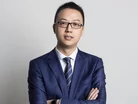Why has Alibaba Cloud CEO Zhang quit as Wu takes top job?

There is no lack of drama at Alibaba when it comes to changes in leadership.
A little over two months ago, Daniel Zhang was the Group CEO and had overseen the decision to split the Chinese tech giant into six separate business groups.
That split then saw Zhang relinquish CEO duties to fellow co-founder Eddie Wu in order to concentrate on Alibaba Cloud as it prepares for an expected IPO in May 2024
Now, just hours after Wu taking the helm on September 10, Zhang has announced he is quitting and intends to start his own technology fund.
Zhang is one of the original co-founders of Alibaba and took over as CEO from Jack Ma in 2015, becoming group chairman in 2019. He took over the cloud division in December 2022 and decided to focus on that division in June to ensure a clean split with the rest of the Alibaba Group ahead of that planned IPO.
Now the responsibility for cloud has fallen to Wu, who already has plenty on his proverbial plate.
One of the 19 original co-founders, as well as being Group CEO, Wu is chairman of Taobao Tmall Group, director of the Local Services Group and Alibaba International Digital Commerce Group. Now he is also CEO and chairman of the Cloud Intelligence Group and has lost his former boss.
That could play into Wu’s hands as he has stated in a letter to employees that he intends to promote younger employees in the next four years within business management teams to deliver a “start-up mindset”.
Specifically, Wu stated he would be looking to promote management teams born after 1985. Wu himself is credited internally with spearheading the tech company’s transition to the mobile era with the launch of Taobao’s mobile app.
He also said that the company would be ‘user-first’ and ‘AI-driven’.
“Over the next decade, the most significant change agent will be the disruptions brought about by AI across all sectors,” Wu stated. “If we don’t keep up with the changes of the AI era, we will be displaced.”
Restructuring of the US$220 billion Chinese tech giant into six separate business units, each operating like a holding company and with their own board of directors, was believed to have been designed to appease Chinese regulators, as well as to unlock shareholder value, with Alibaba Group looking to pursue independent IPOs for some of the entities.
The six business groups are:
Alibaba Cloud Intelligence
Taobao Tmall Business
International Digital Commerce
Local Life
Cainiao
Dawen Entertainment
Considering the original intention was to create distance between the different businesses in order to appease regulators ahead of any potential IPOs, it will be interesting to see how long Wu retains oversight of the cloud business.



